Pushing Boundaries
Apropos of absolutely nothing, a post about how to jump the checkpoints of genre with such elegance that the border guards don’t even have time to get their guns out.
Genre distinctions are one of those evergreen topics for convention panels, and the eventual consensus tends to be that no, they don’t mean anything, but yes, they do mean something, so a sort of score draw for all sides.
However, like a lot of apparently iron divisions, the closer you get, the fuzzier they look, until what was a wall to challenge Heaven and Earth becomes a rather muddy no-man’s land. Here are a few hardy travellers that have crossed and recrossed that embattled terrain.
The Dying Earth series – Jack Vance
Jack Vance, who died only this May, has for a long time been one of the most highly-regarded fantasy and science fiction authors going, and The Dying Earth stories (really three separate sets of stories with very different feels but a common setting) are some of the best-loved seminal fantasy stories. Or possibly science fiction stories. The point is that the SF/fantasy barrier, that from the point of view, say, of an insect-themed epic fantasy author can seem impenetrable, is totally permeable. Back in the old pulp days, all sorts of elements of horror, SF and fantasy were jumbled together rather like Stephen J Gould imagines physical characteristics might have been in the Pre-Cambrian(1). In the Dying Earth books, Vance’s treatment is that of a fantasy author, but the ancient and decaying world he describes is plainly a post-scientific one, and the magic may simply be sufficiently advanced technology that people use but no longer understand(2). Vance’s influence can be seen in later writers such as Gene Wolf (the various Sun series) and Mark Charan Newton's Legends of the Red Sun, and in the original Dungeons and Dragons game. As an indication of the high esteem that Vance is held in, have a look at the anthology Songs of the Dying Earth from Harper Voyager — it's quite a roll call. (3)
Tim Powers is a singular writer, a master of detailed research who crafts fantasy/horror plots to fit, for the most part, an established historical setting, pulling off the trick with such accomplished skill that one genuinely starts to get twitchy at the plausibility of it all. His fictions, terrifying as they are, tend to explain the established facts more convincingly than reality. With Declare, my favourite of his books, he presents a sharp spy thriller, crammed full of historical verisimilitude and painstakingly researched spycraft, which just happens to involve the story of human contact with a race of elemental Jinn.
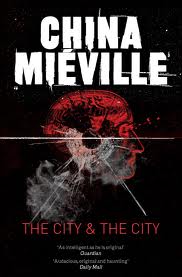 The City and the City – China Mieville
The City and the City – China Mieville
I’ve made no secret of my admiration for Mr M, and he’s very much a writer of the littoral, whose work lies in exploring and blurring boundaries. His own work ranges freely across the literary canon, but against strong competition I think The City and the City is my favourite, a bizarre police procedural set in two cities that co-exist uneasily side by side but intermingled: two distinct cultures whose territories are scattered and dotted through a single city, and who are forbidden from noticing or interacting with each other. It’s a weird trick, but he pulls it off with his usual aplomb.
The Shining Girls – Lauren Beukes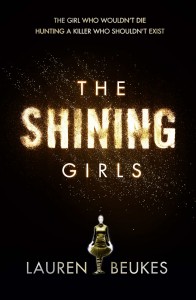
A new offering from the author of Zoo City (another great favourite of mine), Ms Beukes’s latest is a crime novel, the story of a serial killer who targets a series of girls who just happen to live in a selection of different time periods. In my local bookshop it was out on the crime shelves, but it’s a time travel story as much as anything else – unclassifiable, and undeniably effective no matter how (or whether) you try and categorise it.
I don’t need to talk about the great loss to the genre inherent in the recent death of Mr Banks. He has been one of our strongest voices, one of our best ambassadors, and a man who quite consciously stood over genre conventions like a colossus. He was respected for his SF novels, both the Culture series and a number of stand-alone works (for the record, my favourites are Feersum Endjinn and The Algebraist), and also for a string of ostensibly non-genre novels, including the astonishing (and highly disturbing) The Wasp Factory. Transitions was published under Iain Banks (no M), therefore nominally a ‘mainstream’ book, and it is at the same time a social critique of modern society and its excesses, and also a story of world-jumping assassins and their feuding ideologies.
(1) See his Wonderful Life.
(2) One of the interesting thoughts in THIS POST, past all the Mermaids stuff, is that as our technology grows appreciably more like magic, in that it does what we want at our whim, without us having the faintest idea how, we re-enter the realms of credulity and superstition. The divine between the gadgets and the science grows and grows until it’s magic wands and magic words and how many people know how an iPad works, anyway?
(3) And they didn't ask me! Seriously, if anyone else is planning a Dying Earth anthology give me a shout, I so have a story for you :).
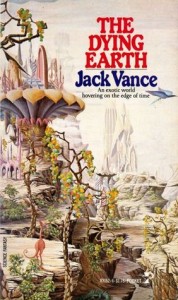
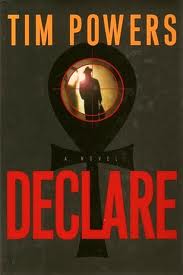
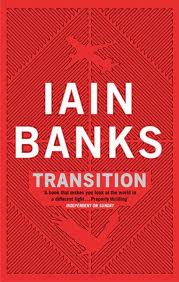
 © 2008-2025 Pan Macmillan
© 2008-2025 Pan Macmillan
… and you can buy TV remote "wands" as well 😀